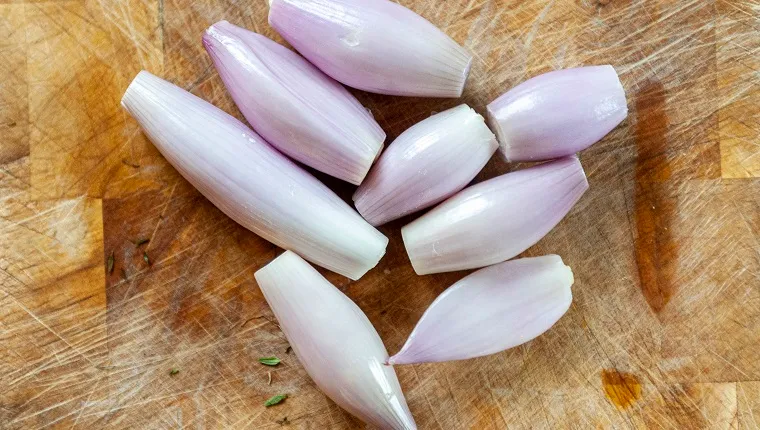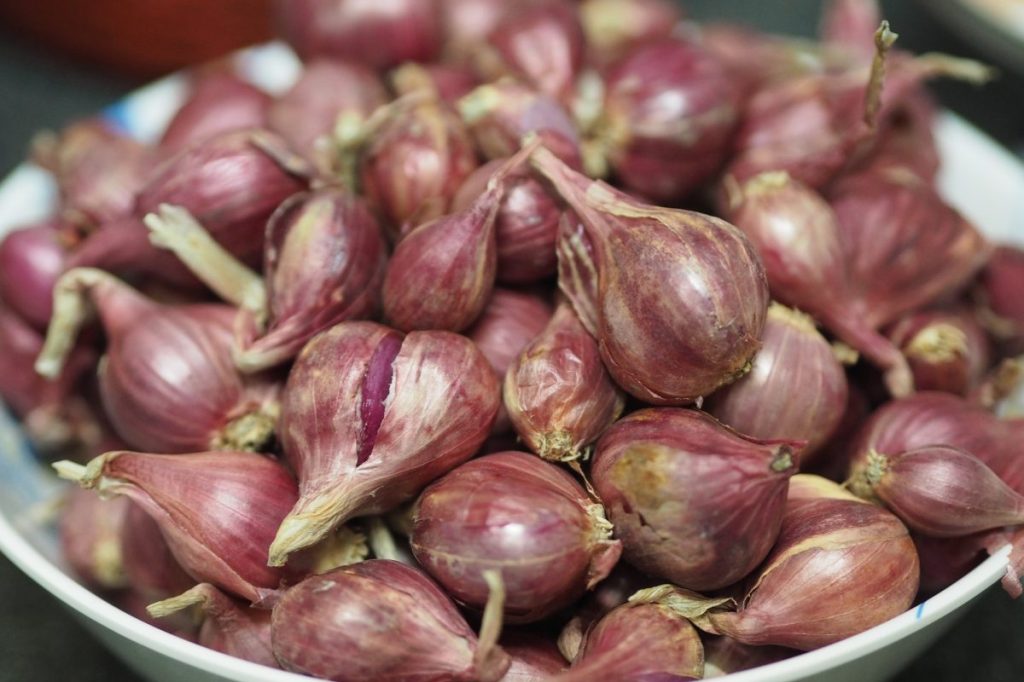Can dogs eat shallots? I don’t know about you, but shallots are my favorite form of onion, and I include them in everything I can. But what if you want to share a taste with your dog? Are shallots safe for our dogs to consume?
The short answer is no; shallots are completely toxic for dogs to consume. Shallots are just as bad for dogs as onions, garlic, and leeks.
They all hail from the same family, and all are toxic for our dogs. This includes foods cooked with these ingredients — something to be extra mindful of, since they are all household staples for us humans.
Talk to your veterinarian for all the information about the toxicity of shallots. Be sure to consult them about toxic foods you keep in your home. In the meantime, here is everything we’ve gathered on why shallots are toxic for dogs.
Why Are Shallots Bad For Dogs?
Shallots are part of the Allium family. As mentioned, this includes other foods toxic to dogs, such as onions, garlic, leeks, scallions, and chives. While shallots are not the greatest threat out of this group, they’re still dangerous enough to avoid entirely.
These vegetables, which are present in many households, create oxidative damage in our dogs. Their red blood cells are attacked, causing intestinal ruptures and extreme gastrointestinal obstruction.
Soon after ingesting, symptoms such as diarrhea, abdominal swelling, excessive drooling, nausea, and diarrhea are likely to occur.
This oxidative damage can lead to anemia, which can be recognized by lethargy, an increased respiratory rate, rapid heart rate, pale gums, collapsing, weakness, and more.
Don’t be led into a false sense of safety if your dog doesn’t feel sick immediately, either. These symptoms don’t always present themselves right away, especially in larger breeds. For some dogs, it can take several days, or even longer, for the buildup from poisoning to present itself.
How Should I Do If My Dog Ate A Shallot?

Your response should vary, depending on the amount of shallot consumed by your dog.
If they snatched up a little scrap of shallot off the floor, there isn’t much cause for concern, especially if you happen to have a larger breed of dog. Keep an eye on them for the next few hours for stomach upset, and give your veterinarian a call if you feel it necessary.
However, if your dog ate an entire shallot, got into food with a heavy amount of shallots in it, or suffers from any underlying health conditions already, seek veterinary care.
Fortunately, the time window for fatality is significant, but the danger of poisoning from these foods will only increase the longer you wait.
With regular onions, for every 20 kilograms your dog weighs, it only takes 100 grams of onion before toxicity occurs — roughly the amount of a medium-sized onion. Considering the amounts we keep around the house, it is an ever-present danger.
Be quick, be proactive, and get your dog the care they need to wipe the toxins from their system.









